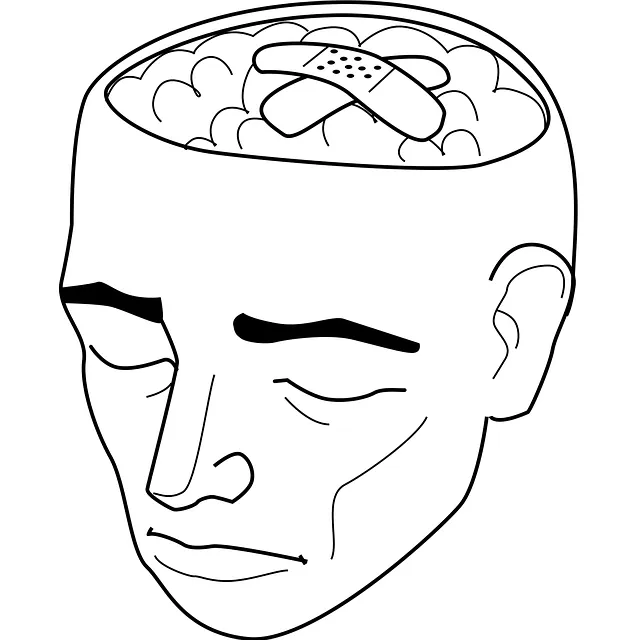The Lone Tree Kaiser Permanente mental health center provides swift and effective crisis intervention through evidence-based practices, focusing on holistic care. Their expert team uses comprehensive assessments that consider social, cultural, and personal factors, alongside advanced techniques like Cognitive Behavioral Therapy (CBT). Programs like Mind Over Matter equip patients with coping strategies for long-term resilience. By integrating compassion cultivation and self-assessment tools, the center drives continuous improvement in burnout prevention while offering personalized support tailored to each client's unique needs, ensuring long-term recovery and mental wellness.
“At the Lone Tree Kaiser Permanente Mental Health Center, crisis intervention plays a pivotal role in patient care. This article provides an in-depth guide to effective crisis intervention strategies, focusing on techniques used by professionals at our renowned facility. We explore assessment methods, evidence-based management practices, and post-crisis support procedures. By understanding these approaches, mental health practitioners can offer crucial assistance during acute situations, ensuring positive outcomes for patients at Lone Tree Kaiser Permanente.”
- Understanding Crisis Intervention at Lone Tree Kaiser Permanente Mental Health Center
- Assessment and Evaluation Techniques for Effective Support
- Evidence-Based Strategies for Crisis Management
- Post-Crisis Care and Follow-Up Procedures
Understanding Crisis Intervention at Lone Tree Kaiser Permanente Mental Health Center

At Lone Tree Kaiser Permanente Mental Health Center, crisis intervention is a cornerstone of their comprehensive care approach. The center recognizes that mental health crises can be overwhelming and life-altering events, requiring immediate and effective support. Their team of trained professionals is dedicated to providing swift assistance to individuals facing emotional distress or suicidal ideation. By implementing evidence-based practices, the center ensures that every patient receives personalized guidance tailored to their unique needs.
Lone Tree Kaiser Permanente’s crisis intervention strategies are designed to not only offer immediate relief but also to empower individuals with long-lasting coping mechanisms. The mental health education programs incorporate Mind Over Matter principles, helping patients build resilience and a sense of control over their mental well-being. Through these programs, individuals gain valuable skills to navigate future challenges, boost their confidence, and promote overall mental health and wellness.
Assessment and Evaluation Techniques for Effective Support

Assessment and evaluation are crucial components of crisis intervention strategies at the Lone Tree Kaiser Permanente mental health center. Trained professionals employ a variety of techniques to understand the individual’s situation, needs, and strengths. This includes comprehensive assessments that consider not just symptoms but also social, cultural, and personal factors. By integrating Compassion Cultivation Practices, healthcare providers create a safe and supportive environment, fostering open communication and encouraging clients to share their experiences.
Effective evaluation goes beyond initial assessment, focusing on tracking progress, measuring the impact of interventions, and ensuring client satisfaction. This data-driven approach allows for continuous improvement in Burnout Prevention Strategies for Healthcare Providers. Additionally, regular self-assessment helps professionals reflect on their own emotional well-being, enhancing their ability to offer Confidence Boosting support tailored to each client’s unique needs.
Evidence-Based Strategies for Crisis Management

In managing crises effectively, evidence-based strategies have proven to be instrumental in institutions like the Lone Tree Kaiser Permanente mental health center. These approaches are grounded in rigorous research and clinical trials, ensuring their efficacy and reliability. For instance, Cognitive Behavioral Therapy (CBT) is widely recognized as a powerful tool for addressing various mental health challenges, from anxiety disorders to depression prevention. By focusing on identifying and modifying negative thought patterns and behaviors, CBT empowers individuals to develop healthier coping mechanisms.
Additionally, integrating self-care routine development for better mental health into crisis intervention plans can significantly enhance outcomes. This includes promoting Burnout Prevention strategies, such as stress management techniques, regular exercise, and adequate sleep hygiene. Encouraging patients to engage in activities that foster resilience and emotional well-being, like mindfulness meditation or creative outlets, can help mitigate the risk of future crises. The Lone Tree Kaiser Permanente mental health center, for example, may incorporate these evidence-based strategies to provide comprehensive care tailored to individual needs during times of crisis.
Post-Crisis Care and Follow-Up Procedures

After an initial crisis intervention, providing sustained support is vital for long-term recovery. The Lone Tree Kaiser Permanente mental health center emphasizes the importance of post-crisis care, ensuring individuals have access to ongoing resources and guidance. This phase involves regular check-ins, where trained professionals assess the individual’s mental wellness and adjust treatment plans as needed. By implementing Mind Over Matter Principles, the center fosters resilience and equips clients with coping strategies for future challenges.
The follow-up process is tailored to each person’s unique needs, incorporating Compassion Cultivation Practices to promote self-compassion and emotional regulation. This personalized approach aims to prevent relapse and encourage a lasting positive change. Through ongoing support, the Lone Tree Kaiser Permanente mental health center ensures that those in recovery maintain their mental wellness and live fulfilling lives.
At Lone Tree Kaiser Permanente Mental Health Center, crisis intervention plays a pivotal role in providing immediate and effective support. By employing evidence-based strategies outlined in this guide, professionals can navigate challenging situations with confidence. Assessment techniques enable thorough evaluation, while post-crisis care ensures continuity. This comprehensive approach, backed by research, empowers staff to offer exceptional assistance at the center and beyond, fostering healthier communities.






